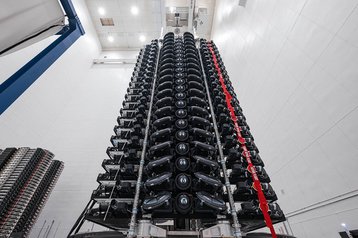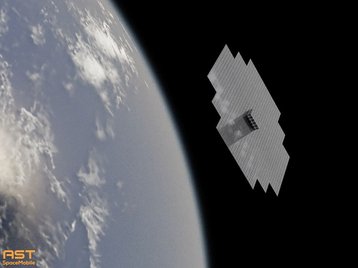Telco One New Zealand (One NZ) has partnered with SpaceX’s satellite unit Starlink to provide nationwide direct-to-cell coverage.
The telco, previously known as Vodafone NZ, announced the partnership this week as part of plans to provide coverage to 100 percent of the country and end blackspots.
One said the company currently provides coverage to ‘98 percent of the places New Zealanders live and work’, but almost 50 percent of the landmass still has no coverage.
"When the service goes live, there will be coverage across the country whether you’re out on your boat, climbing a mountain, fixing a remote road, or on your farm – you and your businesses are safer with us,” said One NZ CEO Jason Paris. “This means the immediate communication issues experienced after Cyclone Gabrielle will be confined to history. It will give our customers more freedom with 100 percent coverage across the country.”
The service will be available from late 2024, and will initially support text and MMS, with voice and data services to follow from 2025.
One NZ has dedicated part of its mid-band spectrum to ensure anyone will be able to call 111 in an emergency (when voice satellite calling is available), no matter which mobile provider they are with.
SpaceX president and chief operating officer Gwynne Shotwell added: “New Zealand is one of the most isolated and rugged countries in the world, which makes it an ideal use case for SpaceX’s direct-to-cell connectivity. We are excited to announce this collaboration with One New Zealand to bring cellular coverage across 100 percent of the country.”
Starlink has previously signed direct-to-cell agreements with T-Mobile in the US and Salt in Switzerland, as well as a backhaul deal with KDDI in Japan.
Starlink is now available in Ecuador, starting with the Galapagos Islands. It has also launched in Haiti.
OneWeb, Lyft, AST Spacemobile
In other satellite news:
- Beeline Kyrgyzstan has said it aims to use OneWeb’s satellite services to provide continuous coverage across the country.
OneWeb signed a distribution deal with Beeline’s parent company Veon last month.
OneWeb and Eutelsat are reportedly set for a secondary listing on the London Stock Exchange once their merger is complete, according to the Times. A secondary listing in the UK was a commitment negotiated by ministers as part of the merger, according to OneWeb chairman Sunil Bharti Mittal.
- Back in New Zealand, telco 2Degrees is partnering with direct-to-cell satellite firm Lynk. The companies will trial Lynk services in the country, with the aim of providing nationwide coverage.
This year Lynk said it has conducted successful trials in Mongolia, Palau, New Zealand, and Antarctica. The company has partnered with Telecel Centrafrique SA for demonstrations in the Central African Republic and with Globe Telecom for trials in the Philippines.
- AST SpaceMobile, another company launching direct-to-cell satellite services, has pushed the launch of its first commercial satellites back to 2024.
SpaceNews reports the company planned to launch the first five already-delayed BlueBird satellites later this year, but has now pushed them back to Q1 of 2024.
Those five units were set to be smaller than later tranches in order to speed up development and avoid further supply chain issues. A second tranche of 20 larger satellites is still set to launch later in 2024.
Costs for the second tranche of satellites – known as block 2 – have also risen to more than $16 million per unit. The company has enough funding to launch block 1 and is exploring routes to raise capital for block 2.


